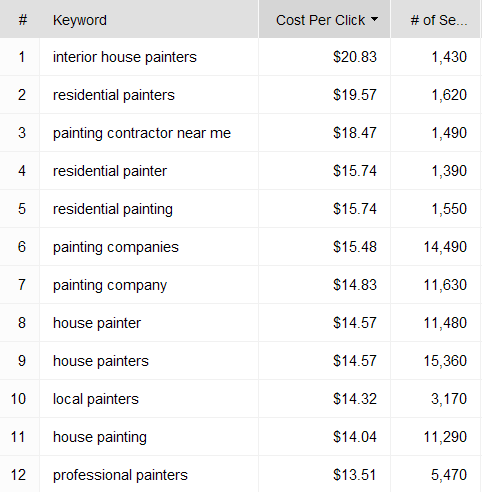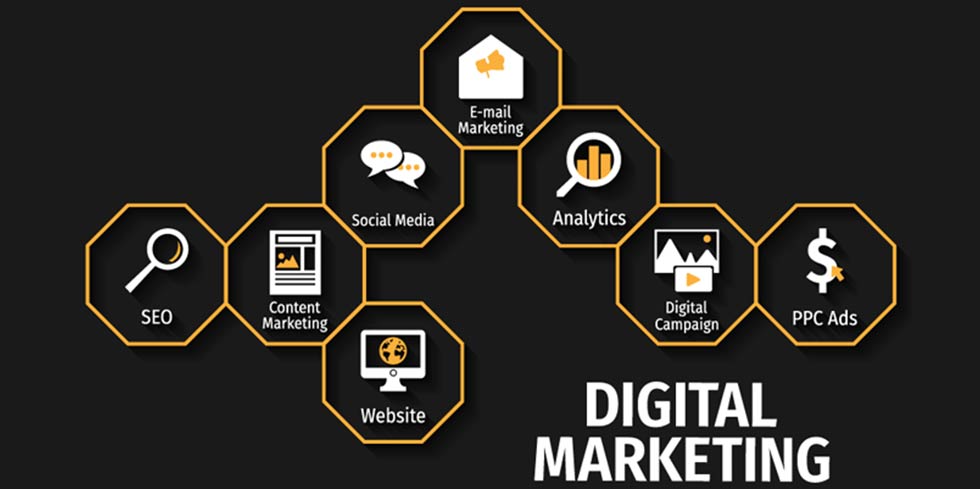When I meet someone new and they ask what I do, I typically tell them that I run a Digital Marketing Agency. Sometimes I get confused stares, then I tell them I help an organization or company show up on Google and other places online when people search for products or services they offer. I learned years ago from my lovely wife, most people do not want a detailed overview of how SEO and PPC campaigns and algorithms work. That was great advice – thanks, my love!
However, for you, you unusual glutton for punishment, you now not only know what I do, you’re continuing to read my post about SEO and Digital Marketing. Warning: many people find these topics help induce sleep, so make sure you are sitting and have a pillow nearby…. You have been warned!
So why is SEO the foundation of our agency? In general, SEO works over the medium to long term. If done correctly, search engine optimization increases its effectiveness over time. In general, past efforts will help increase future results. PPC or Pay Per Click advertising for example works, and many organizations should and do use it, however, in general, there is a much smaller amount of traffic and exposure that you can reach with advertising than with SEO. Also, it tends to get expensive if you are bidding on competitive keywords in competitive areas.
Google Ads PPC works on an algorithm, and that algorithm is designed to make Google money. Not surprised are you? The more desirable (competitive) a search term is, and the more competitive a search topic is (think DUI Attorney in Philadelphia or Divorce Attorney in BIGTOWN, USA) and you get the idea. PPC is based on clicks, you pay per click. To have your ad shown in a location where it will get clicked (and you get charged), several things need to happen:
Your bid needs to be competitive (you can set limits or let Google auto bid for you for example to maximize clicks).
- Your ad needs to be of good quality and relevant to the keyword being bid on to have it show in the search results.
- The quality of the page the user lands on needs to be good, or at least as good or better than other bidders, and be again relevant to the ad that was clicked and keyword being bid on.
So, if you are targeting a keyword like House Painter for example, you could expect to pay on average $14.57 per click. Then you need to know how many clicks lead to a call or lead form submission, and then how may incoming leads it takes to get a new customer. Contractors are usually very good at this. Let’s say it takes on average 8 clicks to get a phone call or form filled in, and then to keep it simple, let’s say that it takes 5 leads (calls or form submits) to equal a new client, and a new painting job on average costs $7K. So, that is $14.57 X 8 = $116.56 / lead. Since these are cold leads, some may have wrong contact info, some may just be curious but not interested now. Let’s say it takes 5 leads to get a new customer. So that is $116.56 x 5 = $582.80 per new customer. That is on average 8.3% cost per new job.
Below are the actual costs per click for some popular painter related keywords using Google Ads as of October 2020:

Let’s say a goal is 10 new clients a month, that would be a cost of $5820 in advertising based on the above numbers. The advantage is once you know your numbers you can scale up and down as needed. Your conversion numbers may be more or less, this is just an example.
SEO on the other hand works by ranking your website pages based on the searches and location a searcher is in at the time. SEO also considers the device you are using (mobile vs desktop), and it does an o.k. job at giving results based on what we call search intent. For example, if you are searching for ball bearing manufacturers, you will most likely get search results across the USA and even internationally. If you search buy ball bearings or motorcycle bearings you will most likely get a mix of GMB (Google My Business, Maps, and Local results, and maybe some national results). Google knows the second search is most likely someone interested in finding a local distributor to purchase bearings.
When we start an SEO campaign for a client, it is important we understand what they want to rank for, what the competition is for what and where they want to rank, who they want to reach (there are different ways to rank locally than nationally), where they want to rank (3 miles, 20 miles, a 3 state area, etc.) as that will determine the strategies we use and also the budget we need to successfully be able to effectively work towards the target SERP or search engine result placement.
The how of SEO is way beyond the scope of this article, however, one of the first steps in ranking a site is to help the site gain credibility with Google’s algorithm but doing the things that it expects a real company to do (and that make sense to do both for Google and for human visitors), and do them effectively and at a high enough level that Google starts to take notice. Over time we start to target more specific keywords as the site gains credibility. Once we are ranking for some keywords in a few areas, we know what we are doing is working. Then we can start to work on new keywords and/or locations. The credibility we built for the website and brand remains in place and we are starting from a huge advantage vs. a new competitor that we may be up against.
As you can see, SEO takes longer, has more moving parts, but increases its effectiveness over time. The majority of web searchers will choose to click on a natural organic result vs. an ad. So SEO has a better chance of attracting clicks vs. an ad shown on the same page. Both work, so a good mix is usually to do both. That strategy is for another article.

